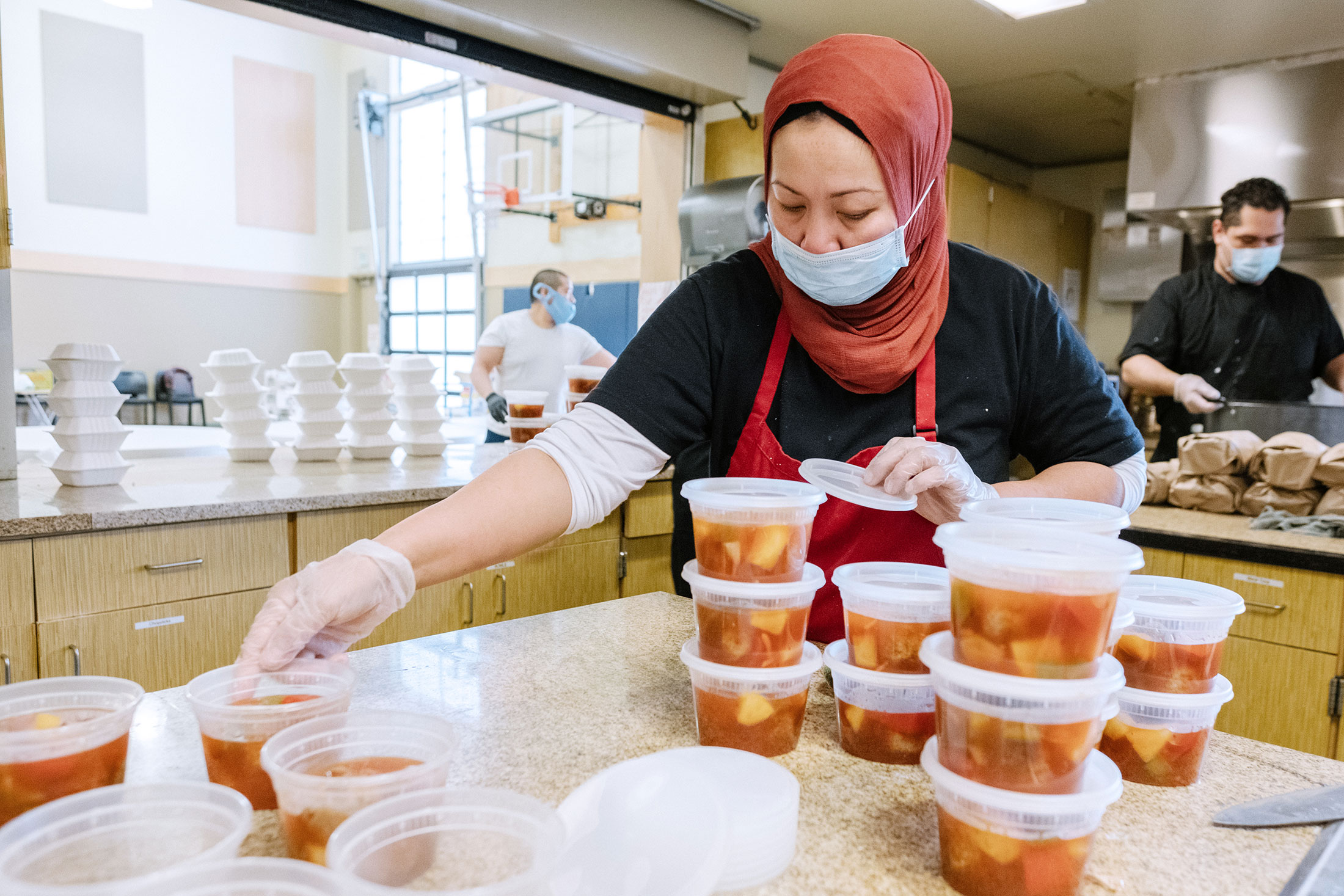By Jason Cruz
Northwest Asian Weekly
Asian Counseling and Referral Service (ACRS) has been a mainstay in South Seattle, assisting the local community with a variety of vital services since 1978. The pandemic has seen it shift its focus like many other organizations as they adjust to a new normal.
The first concerns over the virus came with stories from China.
“Since we heard the early stories about COVID-19 in China, we began to see immediate decline in sales in our local Asian restaurants and other businesses,” said ACRS Executive Director Michael Byun. “The impact was more acutely felt in places like our Chinatown-International District (CID) in Seattle. In the CID, businesses saw a drop in sales, ranging from 20% to 70%.”
ACRS, which helps in promoting social justice and wellbeing within the Asian American community, has seen problems with the perceptions of the pandemic.

Meal prep for the ACRS food bank
“The decline in patrons to Asian businesses also parallels an increase overall across the country in terms of bias, harassment, discrimination, and even violence against Asian Americans. And the situation is further aggravated when we hear leaders and influencers using terms like the ‘Wuhan Virus’ or the ‘Chinese Pandemic.’” A segment of the population ACRS assists are immigrants and refugees. “Part of our community is afraid to go out to take care of important activities, such as grocery shopping or attend a medical appointment. What’s most concerning is an overall sense of fear among our Asian American community.”
Due to the quarantine and anti-Asian sentiment, it has resulted in more need for mental health service, states Byun.
“Our mental health and recovery services have seen an increased request in mental health intake service,” Byun added, “For both adults and youth, the required Stay Home, Stay Healthy order means isolation and limited connection to others and the community.”
The impact of the shutdown and isolation could have lasting effects on ACRS’ population.
“This could especially be tough for adults and older adults who are limited English proficient or do not have strong digital literacy. For our younger clients, who need to be with peers, social media alone does not replace the experience of physically being with friends. There is also the looming concern of how long this will last. A question for those with severe and persistent mental illness and those with other underlying physical health conditions, such as diabetes or heart disease, might have more difficulty coping during this time. For those in recovery, the chances of relapses have been higher.”
Byun is concerned with the basic needs that many in the community might need during the pandemic. “We are seeing an increase in request to provide meals for older adults who are homebound and to provide bags of grocery to other vulnerable individuals and families. Given the rapidly evolving situation with the pandemic, our staff have been working diligently to adjust and respond.”
Byun noted that many of the Asian American and Pacific Islanders that they serve are hourly workers that run the risk of losing their jobs during the pandemic.
“There is a need to address immediate financial needs such as funds to pay rent, or buy medication or cover non-food essentials like toilet paper.”
Similar to other organizations, ACRS has shifted its in-person services. One of the services is its food bank and it has made the service mobile. “Our food bank, senior meal, and emergency food programs have shifted their focus from site-based services to a delivery model.” In the CID, ACRS is partnering with the Seattle Chinatown International District Preservation Development Authority to deliver bags of grocery to residents, mainly older AAPI adults with limited means, in eight buildings. For the residents, this is an important lifeline. In addition, it has helped process unemployment insurance claims via telephone instead of in-person interviews. ESL classes and its Youth Summer Programs are being held via Zoom, Skype, or Google Hangout. Byun noted that the one positive from the pandemic is that the online process has made everyone proficient in technology.
Even with the stay-at-home orders, ACRS realizes the importance of voting this November. “In the past, we’ve always worked with ACRS case managers to hold ballot parties with their clients,” stated ACRS Policy and Civic Engagement Director Shomya Tripathy. “This year, we will be reaching out to case managers to hold virtual ballot parties, where clients can learn about the ballot and how to fill it out.” In addition, ACRS will do phone banking in multiple languages for AAPI voters, as well as place ads in ethnic media outlets and send out mail reminders to residents in predominant AAPI neighborhoods.
Jason can be reached at info@nwasianweekly.com.



